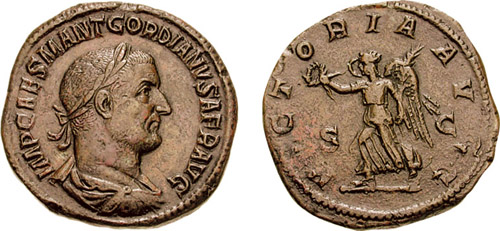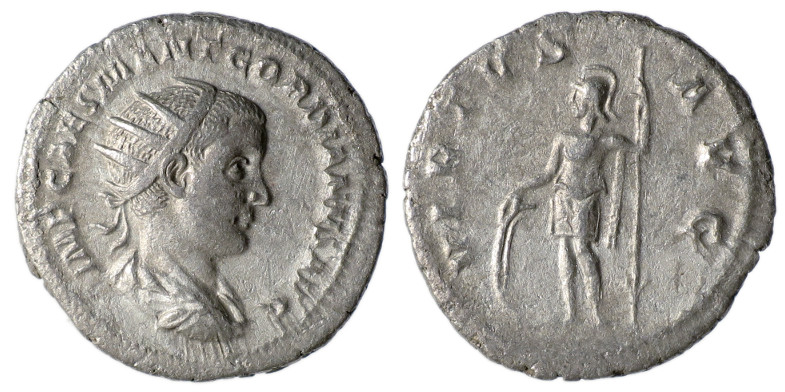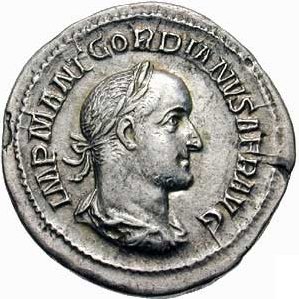|
Marcus Antonius (other)
Several ancient Roman males with the family name ''Antonius'' had Marcus as their first name ''(praenomen)''. The most famous of these is Mark Antony (ca. 83–30 BC), the close associate of Julius Caesar and lover of Cleopatra. Others who might be referred to as Marcus Antonius (or a similar name) include: People in ancient Rome and Italy *Marcus Antonius (orator) (143–87 BC), Roman consul in 99 BC, known as "the Orator" * Marcus Antonius Creticus (died 72–71 BC), Praetor in 74 BC, father of the famous Mark Antony *Marcus Antonius Antyllus (47–30 BC), eldest son of Mark Antony *Marcus Antonius Gnipho ( 1st century BC), grammarian and teacher of rhetoric of Gaulish origin * Marcus Antonius Felix, Roman procurator of Iudaea Province 52–58 * Marcus Antonius Primus, Roman general under Nero's reign until at least Domitian's *Gordian I, born Marcus Antonius Gordianus Sempronianus, later called Marcus Antonius Gordianus Sempronianus Romanus Africanus (159–238), Roman emperor ... [...More Info...] [...Related Items...] OR: [Wikipedia] [Google] [Baidu] |
Ancient Roman
In modern historiography, ancient Rome refers to Roman civilisation from the founding of the city of Rome in the 8th century BC to the collapse of the Western Roman Empire in the 5th century AD. It encompasses the Roman Kingdom (753–509 BC), Roman Republic (509–27 BC) and Roman Empire (27 BC–476 AD) until the fall of the western empire. Ancient Rome began as an Italic settlement, traditionally dated to 753 BC, beside the River Tiber in the Italian Peninsula. The settlement grew into the city and polity of Rome, and came to control its neighbours through a combination of treaties and military strength. It eventually dominated the Italian Peninsula, assimilated the Greek culture of southern Italy ( Magna Grecia) and the Etruscan culture and acquired an Empire that took in much of Europe and the lands and peoples surrounding the Mediterranean Sea. It was among the largest empires in the ancient world, with an estimated 50 to 90 million inhabitants, roughly 20% o ... [...More Info...] [...Related Items...] OR: [Wikipedia] [Google] [Baidu] |
Gordian I
Gordian I ( la, Marcus Antonius Gordianus Sempronianus Romanus; 158 – April 238 AD) was Roman emperor for 22 days with his son Gordian II in 238, the Year of the Six Emperors. Caught up in a rebellion against the Emperor Maximinus Thrax, he was defeated by forces loyal to Maximinus, and he committed suicide after the death of his son. Family and background Little is known about the early life and family background of Gordian I. There is no reliable evidence on his family origins. Gordian I was said to be related to prominent senators of his time. His praenomen and nomen ''Marcus Antonius'' suggested that his paternal ancestors received Roman citizenship under the triumvir Mark Antony, or one of his daughters, during the late Roman Republic. Gordian's cognomen ‘Gordianus’ also indicates that his family origins were from Anatolia, more specifically Galatia or Cappadocia. According to the ''Historia Augusta'', his mother was a Roman woman called Ulpia Gordiana and ... [...More Info...] [...Related Items...] OR: [Wikipedia] [Google] [Baidu] |
Marco Antônio (other) , born ''Marco Antônio Feliciano'', Brazilian football left-back
* Marco Antônio (footballer, born 1954) (1954–2021), born ''Marco Antônio Rodrigues Alves'', Brazilian football right-back
* Marco Antônio (footballer, born 1963), born ''Marco Antô ...
Marco Antônio may refer to: * Marco Antônio (footballer, born 1940), born ''Marco Antônio Garcia Alves'', Brazilian football attacking midfielder * Marco Antônio (footballer, born 1951) Marco Antônio Feliciano, (born February 6, 1951, in Santos), known as just Marco Antônio, is a former Brazilian footballer. He played left-back with Fluminense Football Club and the Brazil national team. He won the Football World Cup 1970,< ... [...More Info...] [...Related Items...] OR: [Wikipedia] [Google] [Baidu] |
Marcus Antoninus (other)
Marcus Antoninus may refer to: * Marcus Aurelius Antoninus (''Marcus Aurelius'') (121–180), Roman emperor from 161 to 180 * Marcus Aurelius Commodus Antoninus (''Commodus'') (161–192), Roman emperor from 180 to 192 * Marcus Aurelius Antoninus (''Caracalla'') (188–217), Roman emperor from 198 to 217 * Marcus Opellius Antoninus Diadumenianus (''Diadumenian'') (208–218), Roman emperor in 218 * Marcus Aurelius Antoninus (''Elagabalus'') (203/4–222), Roman emperor from 218 to 222 {{Hndis, Antoninus, Marcus ... [...More Info...] [...Related Items...] OR: [Wikipedia] [Google] [Baidu] |
Markos Antonios Katsaitis
Markos Antonios Katsaitis ( el, Μάρκος-Αντώνιος Κατσάϊτις, it, Marco Antonio Cazzaiti, la, Marcus Antonius Cazzaiti, french: Marc-Antoine Cazzaiti, 1717 – 1787) was an 18th-century Greek scholar, geographer and lawyer. Biography Markos Antonios Katsaitis was a Greek who was born on the Ionian island of Corfu in 1717 to a noble family. In his early adolescence he moved to Constantinople where he lived for several years. He became associated with the Phanariotes, a Greek elite based in the Fanar district of Constantinople. Katsaitis travelled to Moldavia and Wallachia from Constantinople in 1742 to meet and secure an audience with the prince of Wallachia Constantine Mavrocordatos (1711–1769). He traveled to Wallachia with the entourage of the Wallachian rulers son Constantin Cantemir. During his travel through the Balkans, Katsaitis documented his travels in a detailed diary. When he finally reached Wallachia he met Mavrokordatos who accepted ... [...More Info...] [...Related Items...] OR: [Wikipedia] [Google] [Baidu] |
Marco Antonio De Dominis
Marco Antonio de Dominis ( hr, Markantun de Dominis; 1560September 1624) was a Dalmatian ecclesiastic, archbishop of Split and Primate of Dalmatia and all Croatia, adjudged heretic of the Catholic faith, and man of science. Early life He was born on the island of Rab (today part of Croatia), off the coast of Dalmatia, in a noble family of Dalmatian origin. Educated at the Illyrian College at Loreto and at the University of Padua, he entered the Society of Jesus in 1579 and taught mathematics, logic, and rhetoric at Padua and Brescia, Italy. He was educated by the Jesuits in their colleges at Loreto and Padua, and is supposed by some to have joined the Society; the more usual opinion, however, is that he was dissuaded from doing so by Cardinal Aldobrandini. For some time he was employed as a teacher at Verona, a professor of mathematics at Padua, and a professor of rhetoric and philosophy at Brescia. Religious politics In 1596 he was, through imperial influence, appointed B ... [...More Info...] [...Related Items...] OR: [Wikipedia] [Google] [Baidu] |
Marcus Antonius Antimachus
Marcus Antonius Antimachus, also written Mark Antony Antimaco or Marcantonio Antimaco (c. 1473 – 1552), was an Italian who mainly taught and translated Greek. Antimachus was born in Mantua. His father, who was also educated, sent him to Greece while he was young, where he spent five years studying Greek under a Spartan, John Mosco. He returned to Italy and opened a Greek language school in Mantua, which became well known. He later moved to Ferrara, where he ran a similar school, and where he died in 1552. In addition to teaching, he translated some Greek works, which were published in Basel in 1540, and wrote some Latin Latin (, or , ) is a classical language belonging to the Italic branch of the Indo-European languages. Latin was originally a dialect spoken in the lower Tiber area (then known as Latium) around present-day Rome, but through the power ... poetry. References * * Diego Baldi, A Conrad Gesner in visita a Ferrara : un epigramma di Marco Antonio Antimaco ... [...More Info...] [...Related Items...] OR: [Wikipedia] [Google] [Baidu] |
Marcus Antonius Coccius Sabellicus
Marcus Antonius Coccius Sabellicus or Marcantonio Sabellico (1436–1506) was a scholar and historian from Venice. He is known for his universal history, ''Enneades sive Rhapsodia historiarum''. Life Born in Vicovaro, his surname was originally Cocci; he took his Latinised name as a pupil of Pomponius Laetus. He studied also with Porcelio Pandone (1405–1485) and Gaspar Veronese.Peter G. Bietenholz, Thomas Brian Deutscher, ''Contemporaries of Erasmus: a biographical register of the Renaissance and Reformation'', Volumes 1–3 (2003), pp. 181–2Google Books Sabellicus became professor of eloquence at Udine in 1473, but was dismissed in 1482. After a short period at Verona, he went to Venice, with the Venetian history he had written speculatively. He was given a teaching position as deputy to Giorgio Valla. In 1487 he was appointed as a curator of the Biblioteca Marciana. Works Sabellicus while at Udine wrote an antiquarian work on Aquileia that appeared in 1482. He then ... [...More Info...] [...Related Items...] OR: [Wikipedia] [Google] [Baidu] |
Gordian III
Gordian III ( la, Marcus Antonius Gordianus; 20 January 225 – February 244) was Roman emperor from 238 to 244. At the age of 13, he became the youngest sole emperor up to that point (until Valentinian II in 375). Gordian was the son of Antonia Gordiana and Junius Balbus, who died before 238. Antonia Gordiana was the daughter of Emperor Gordian I and younger sister of Emperor Gordian II. Very little is known of his early life before his acclamation. Gordian had assumed the name of his maternal grandfather in 238. Rise to power In 235, following the murder of Emperor Alexander Severus in Moguntiacum (modern Mainz), the capital of the Roman province Germania Superior, Maximinus Thrax was acclaimed emperor. In the following years, there was a growing opposition against Maximinus in the Roman Senate and amongst the majority of the population of Rome. In 238, a rebellion broke out in the Africa Province, where Gordian's grandfather and uncle, Gordian I and II, were procl ... [...More Info...] [...Related Items...] OR: [Wikipedia] [Google] [Baidu] |
Gordian II
Gordian II ( la, Marcus Antonius Gordianus Sempronianus Romanus; 192 – April 238) was Roman emperor with his father Gordian I in 238 AD, the Year of the Six Emperors. Seeking to overthrow Maximinus Thrax, he died in battle outside Carthage. Since he died before his father, Gordian II had the shortest reign of any Roman emperor, at 22 days. Early life Born 192, Gordian II was the only known son of Gordian I, who was said to be related to prominent senators. His praenomen and nomen ''Marcus Antonius'' suggest that his paternal ancestors received Roman citizenship under the triumvir Mark Antony, or one of his daughters, during the late Roman Republic. Gordian's cognomen "Gordianus" suggests that his family origins were from Anatolia, especially Galatia and Cappadocia. According to the notoriously unreliable '' Historia Augusta'', his mother was a Roman woman called Fabia Orestilla, born circa 165, who the ''Historia'' claims was a descendant of emperors Antoninus Piu ... [...More Info...] [...Related Items...] OR: [Wikipedia] [Google] [Baidu] |
Marcus Antonius Primus
Marcus Antonius Primus (born between 20 AD and 35 AD – died after 81 AD) was a senator and general of the Roman Empire. Biography Early life Primus was born at Tolosa (Toulouse) in Gaul. He was likely the son/grandson of Lucius Antonius (grandson of Mark Antony). Another possibility is that he was descended from Gauls who had been enfranchised by Mark Antony during his Gallic campaign. He was nicknamed ''Beccus'' ("Beaky"), likely due to his physique. Career During the reign of Nero, he was resident in Rome and a member of the Senate, from which he was expelled for conspiring to forge a will with Valerius Fabianus, and was banished from the city. He was subsequently reinstated by Galba, and placed in command of the Legio VII Galbiana in Pannonia. During the civil war, Primus was one of Vespasian's strongest supporters. Advancing into Italy, he gained a decisive victory over the Vitellians at Bedriacum in October 69, and on the same day stormed and captured Cremona. His victorio ... [...More Info...] [...Related Items...] OR: [Wikipedia] [Google] [Baidu] |
Antonia (gens)
The gens Antonia was a Roman family of great antiquity, with both patrician and plebeian branches. The first of the gens to achieve prominence was Titus Antonius Merenda, one of the second group of Decemviri called, in 450 BC, to help draft what became the Law of the Twelve Tables. The most prominent member of the gens was Marcus Antonius.''Dictionary of Greek and Roman Biography and Mythology'', vol. I, p. 210 (" Antonia Gens"). Origin Marcus Antonius, the triumvir, claimed that his gens was descended from Anton, a son of Heracles.Plutarch"The Life of Marcus Antonius" 36, 60. According to ancient traditions the ''Antonii'' were Heracleidae and because of that Marcus Antonius harnessed lions to his chariot to commemorate his descent from Heracles, and many of his coins bore a lion for the same reason. Praenomina The patrician Antonii used the praenomina ''Titus'' and ''Quintus''. ''Titus'' does not appear to have been used by the plebeian Antonii, who instead used ''Quintus, M ... [...More Info...] [...Related Items...] OR: [Wikipedia] [Google] [Baidu] |





